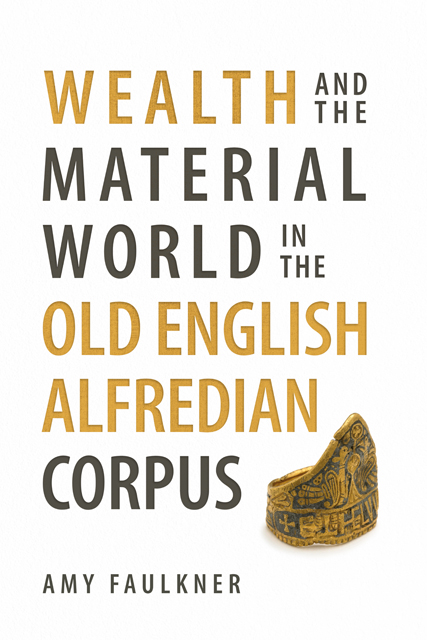Book contents
- Frontmatter
- Dedication
- Contents
- Illustrations
- Acknowledgements
- Abbreviations
- Introduction
- l Books and Ladders: The Speaking Prefaces
- 2 The Stream of Wealth: The Old English Pastoral Care
- 3 True Riches: The Old English Boethius
- 4 The Familiar and the Strange: The Old English Soliloquies
- 5 Treasure in Heaven: The Prose Psalms
- Conclusion: Transformations in Prose and Poetry
- Bibliography
- Index
- ANGLO-SAXON STUDIES
5 - Treasure in Heaven: The Prose Psalms
Published online by Cambridge University Press: 14 June 2023
- Frontmatter
- Dedication
- Contents
- Illustrations
- Acknowledgements
- Abbreviations
- Introduction
- l Books and Ladders: The Speaking Prefaces
- 2 The Stream of Wealth: The Old English Pastoral Care
- 3 True Riches: The Old English Boethius
- 4 The Familiar and the Strange: The Old English Soliloquies
- 5 Treasure in Heaven: The Prose Psalms
- Conclusion: Transformations in Prose and Poetry
- Bibliography
- Index
- ANGLO-SAXON STUDIES
Summary
The Old English Prose Psalms offer a characteristically Alfredian retelling of one of the most familiar books of the Bible. While retaining the devotional aspects of the Psalms which render them so appealing for personal prayer, the translator of the Prose Psalms introduces a pragmatic tone and advice for good secular living reminiscent of the Old English Pastoral Care, Boethius and Soliloquies. Like these texts, the Prose Psalms promote the ideology that piety is readily compatible with involvement in worldly affairs, and that one can be devout not in spite of one's worldly activities but because of them. Central to the good secular life is the appropriate use of wealth. The translator acknowledges the dangers that wealth can pose to human souls, but nonetheless recognises the benefits that good use of wealth can bring about, when treated with wisdom. The translator's efforts to clarify the often cryptic wisdom of the Psalms results in a text that offers practical advice on wealth which is directly relevant to contemporary readers. The transformation from the enigmatic text of the Romanum Psalter to the clear lessons found in the Old English version finds a parallel in the transformation from ignorance to understanding on the part of the reader.
Moreover, I will suggest that the Prose Psalms understand wealth as a current which runs from earth to heaven, as we have already seen in the case of the Pastoral Care. As in that translation, though, wealth cannot go straight to heaven unchanged: just as the reader turns from ignorance to understanding, so too must wealth be transformed from an earthly to a heavenly currency. As we shall see, this transformation is effected through the powerful act of almsgiving. Through giving alms, the giver shows awareness that the tangible, material prosperity of this life is not the endpoint of their wealth. The importance of understanding that one's material existence is by no means stable or enduring is stressed again and again throughout the Prose Psalms and, moreover, finds a perhaps unexpected counterpart in Old English poetry.
Translating the Psalms: style, sources and interpretation
The Old English prose translation of the psalms, traditionally attributed to Alfred the Great, covers only Psalms 1–50: it is unclear whether this is all that remains of a full translation, or whether the translator intentionally stopped at Psalm 50.
- Type
- Chapter
- Information
- Publisher: Boydell & BrewerPrint publication year: 2023

